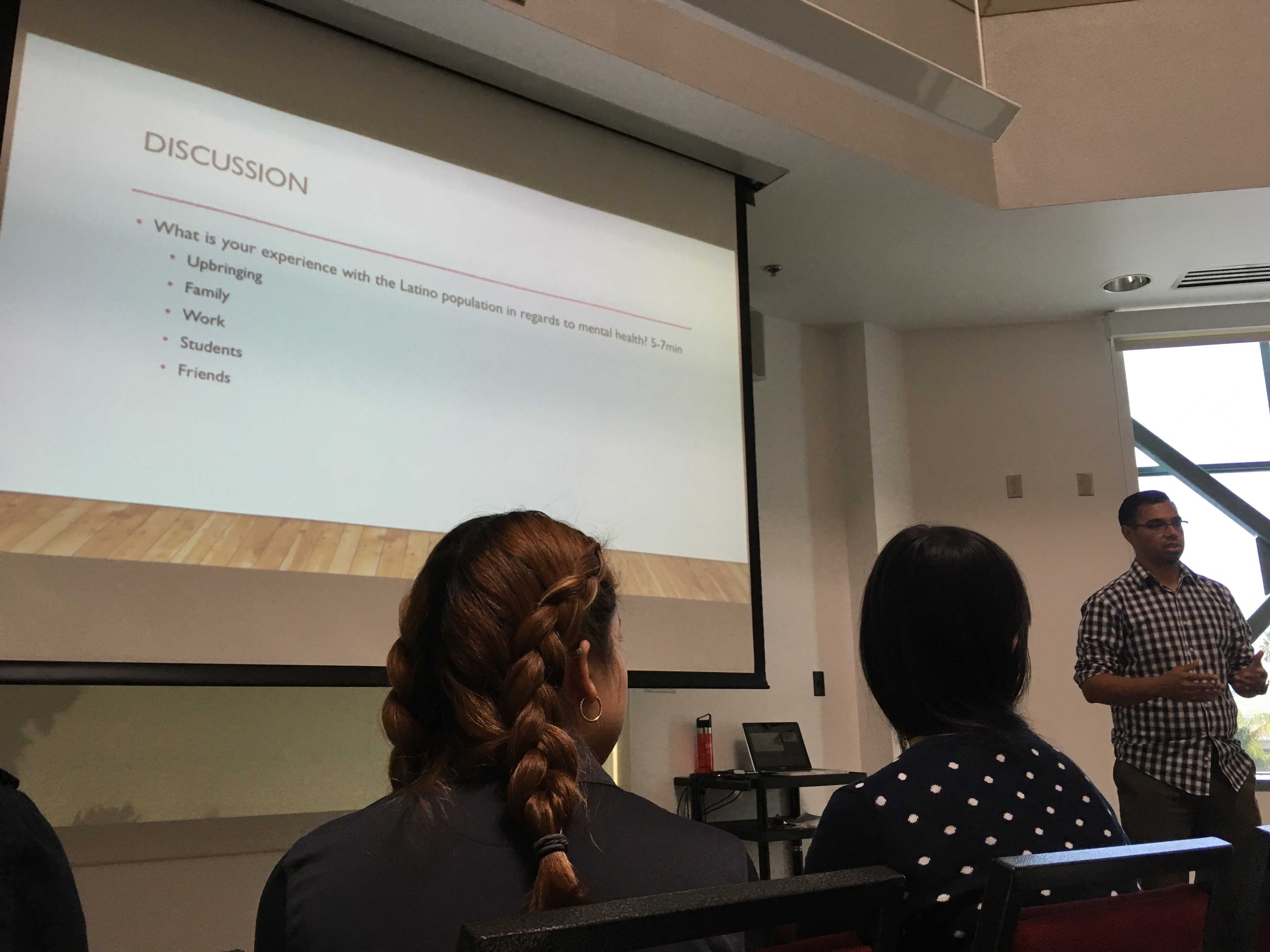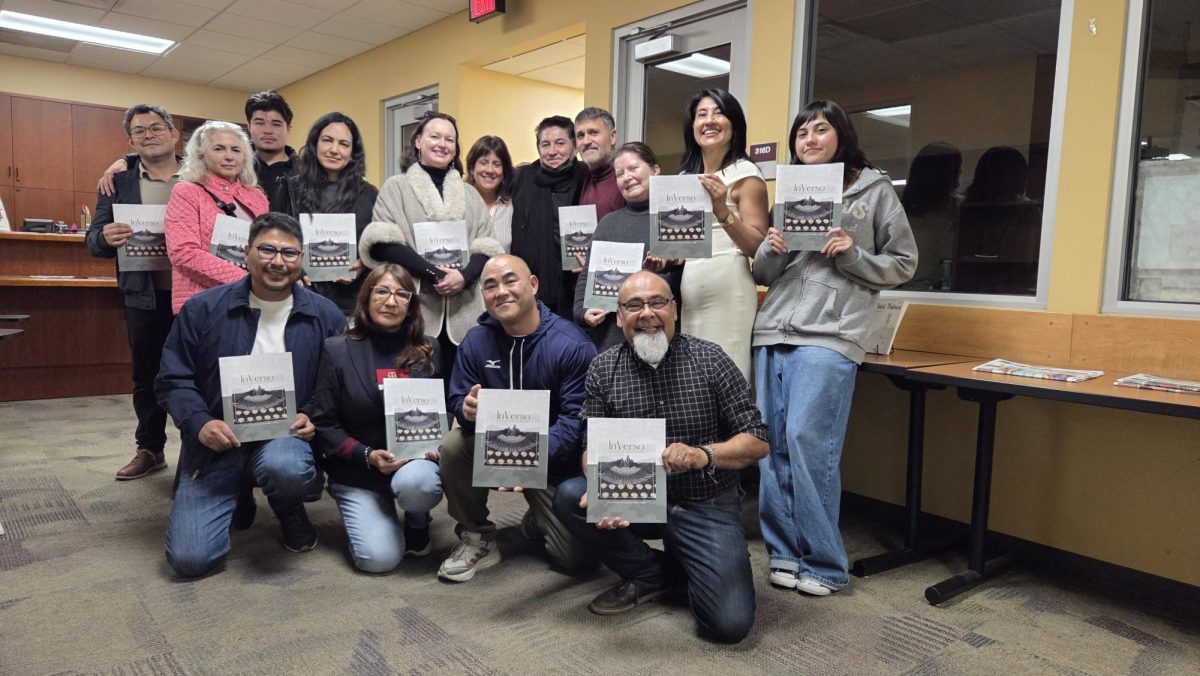Students in the Latinx community learned about how mental health is affected by their community in a workshop part of Beat the Blues Week at CSUN.
The workshop “Mental Health in Latino Studies” was held in the Flintridge Room on Wednesday. The workshop featured a speaker named Abraham Ambriz, the BLUES Project graduate assistant, who spoke on mental health issues in the Latinx community.
Ambriz shared his personal experience with mental health issues and said he was diagnosed with two different anxiety disorders while he was studying at San Francisco State University.
“I dealt with that throughout my whole life not really knowing about it until I was diagnosed,” Ambriz said.
Ambriz said that in the Latinx community, there is this thing called “machismo” that holds people, especially males, from showing emotions.
Ambriz said it is hard to talk about mental health in the Latinx community because it is not always accepted or understood.
“I was really hesitant to tell my family about my disorders,” Ambriz said. “When I told my cousins, they didn’t really know how to react to it.”
During the workshop, Ambriz engaged with the audience by asking them about personal experiences with mental health issues.
Some audience members said they agreed with Ambriz that the machismo stereotype caused some of the people they know to bottle up their emotions and not seek help.
Other audience members shared their reasons for attending the workshop.
“I was drawn to this workshop because of my personal experiences with mental health and in my family,” said Arcelia Martinez, a screenwriting major.
Karla Franco, a psychology major, said she learned how the resources available are being utilized.
“This event gave me the tools and direction on where to go for mental illness,” Franco said.
Martinez said during the workshop she learned how to guide herself better through what mental illness is and how to guide her family through it.
During Ambriz’s research, he found a study by Del Pilar that found higher incidences in the Latinx community of untreated mental illness than in many other groups.
“I had a three week span where it was the worst time of my life,” Ambriz said. “I had panic attacks and I didn’t want to deal with it.”
Ambriz said he wanted to direct the workshop to the Latinx community specifically because no one else talks about it.
“Despite everything we go through in life, we overcome a lot,” Ambriz said.


















